Posted on 7/30/2023
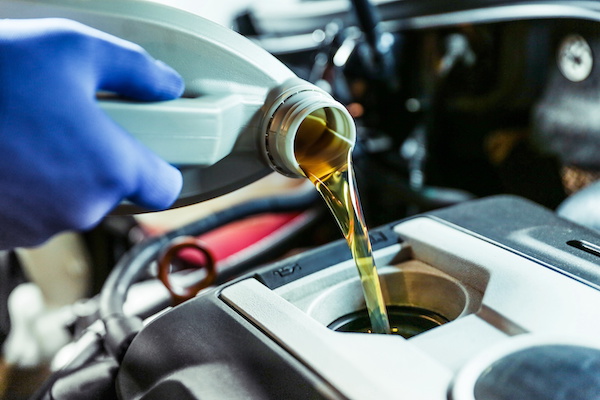
A beginner should understand car maintenance basics to ensure optimal performance and vehicle longevity. Maintaining a vehicle regularly ensures safety on the road and saves money long term by avoiding costly repairs. There are various car maintenance aspects that new car owners should take note of. Continue reading to explore them. Car Maintenance Aspects Every car owner should incorporate these maintenance activities in their car checking routines: 1. Regular Oil Changes Oil is like blood for your engine, lubricating its moving parts and preventing excessive wear and tear. It is crucial to follow your manufacturer's recommendation regarding oil change intervals. Typically, this ranges from every 3,000 to 7,500 miles or every three to six months. 2. Tire Care Proper tire care ensures better fuel efficiency and extends tire life. Regularly check tire pressure using a gauge and maintain it at recommended levels specified by the manufacturer. Additionally, insp ... read more
Posted on 6/30/2023
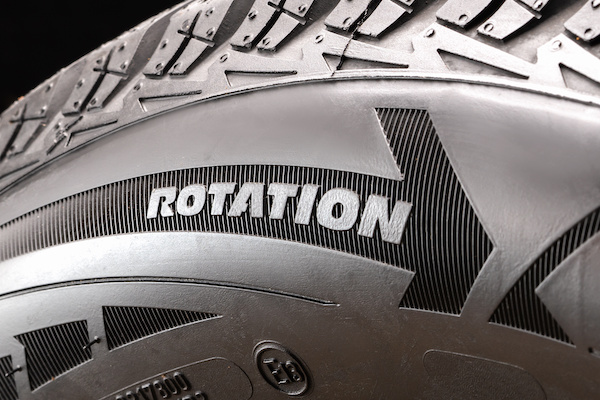
When it comes to maintaining your vehicle's tires, two essential terms often come up: tire rotation and wheel alignment. While both practices are crucial for optimal tire performance and longevity, they serve different purposes. In this article, we will explore the difference between tire rotation and wheel alignment to help you understand their importance. Tire Rotation Tire rotation involves moving the tires from one position to another on your vehicle. The purpose of tire rotation is to ensure even wear on all tires. Since tires in different positions experience varying levels of stress and load, rotating them at regular intervals helps promote balanced wear. It can extend the overall lifespan of your tires, improve traction, and enhance handling. Typically, tire rotation is recommended every 5,000 to 8,000 miles, or as specified by your vehicle manufacturer. Wheel Alignment Wheel alignment, on the other hand, focuses on the angles and position of your vehicle's wheels i ... read more
Posted on 5/30/2023
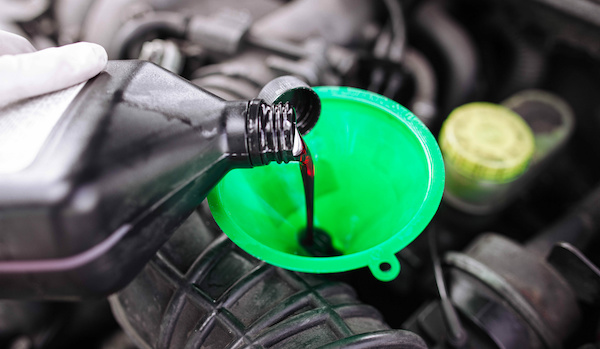
If you own a vehicle, chances are you’ve heard of transmission fluid. But what is transmission fluid, and why is it important? In a nutshell, transmission fluid is the lifeblood of an automatic transmission system. It aids in cooling and lubrication, making it essential for keeping the system functioning optimally. All vehicles have this fluid - without it, your vehicle's transmission would suffer severe damage due to excess heat and friction from the metal-on-metal contact within the system. A regular transmission fluid service or fluid flush guarantees that your vehicle shifts gears smoothly. How Often Should You Replace Transmission Fluid? It really depends on your vehicle’s manufacturer. Some automakers suggest a regular fluid change or flush every 20,000 miles or two years, whichever comes first. For other vehicles, need to be serviced more often. To make sure you&r ... read more
Posted on 4/21/2023

On Earth Day, it's important to remember the impact that our vehicles have on the environment. Vehicles are a significant contributor to greenhouse gas emissions, which are a leading cause of climate change. If you're curious about how vehicles and their emissions leave a carbon footprint, keep reading. A carbon footprint is a term used to account for the total amount of greenhouse gasses emitted into the atmosphere due to our actions. It encompasses everything from driving a car to using electricity in our homes. The more we consume energy, the larger our carbon footprint. How Do Vehicles Leave a Carbon Footprint? Vehicles leave a carbon footprint in several ways: Fuel Emissions: When we burn fossil fuels like gasoline, diesel, and ethanol in our vehicles, they release carbon dioxide (CO2) into the atmosphere. CO2 is a greenhouse gas that contributes to climate change. Manufacturing: The production of vehicles also has an impact on the environment. The manufacturing proc ... read more
Posted on 3/29/2023
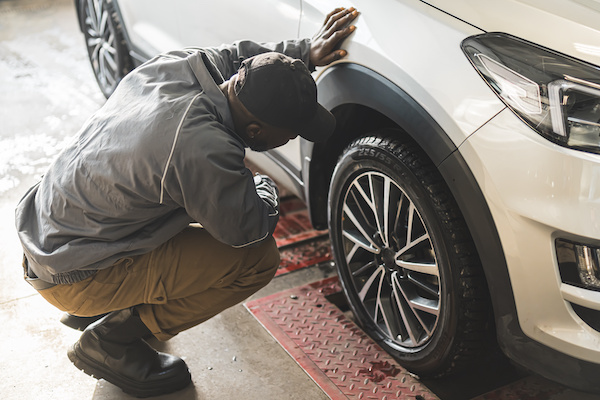
The bounce test is a simple and effective way to check your vehicle's suspension system. The suspension system consists of various components, such as the shocks and struts, to provide a smooth ride and keep the tires in proper contact with the road. Suspension parts also ensure optimal handling and vehicle stability. Over time, the suspension system can wear out or become damaged, affecting your vehicle's overall performance. Here's how to do the bounce test: Park your vehicle on a level surface and make sure it is in park with the engine off. Press down on the front of your vehicle several times to compress the front suspension. Release the car and observe its motion. If the vehicle bounces more than two or three times, it could indicate worn or damaged shocks or struts. Repeat the same process on the rear of the vehicle. Again, observe the vehicle's motion. If the car bounces more than two or three times, it could indicate worn or damaged shocks ... read more
Posted on 2/28/2023

San Francisco is a city famous for its iconic landmarks, hilly terrain, and unique culture. The city's car culture is no exception. San Francisco is a city where people spend a lot of time on the road, so it's no surprise that many people have strong opinions on what kind of car is the best for navigating the city streets. In this blog post, we'll take a look at the most popular vehicles driven in San Francisco. Subaru Outback The Subaru Outback is one of the most popular cars driven in San Francisco. It's easy to see why: it's reliable, practical, and has a spacious cargo area. Plus, it's perfect for the city's steep hills and winding roads. Toyota Prius The Toyota Prius is another popular car in San Francisco. It's known for its fuel efficiency, making it a popular choice for city drivers who spend a lot of time on the road. Plus, it's small size makes it easy to navigate through San Francisco's crowded streets. Tesla Model 3 The Tesla Mo ... read more
Posted on 1/30/2023
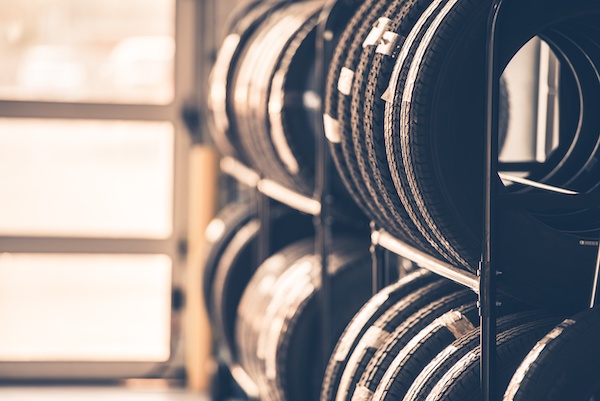
Taylormade Automotive proudly offers tire sales and installation services in San Francisco, CA. Many of our customers are confused about when to replace their vehicle’s tires. The frequency of tire replacements varies from car to car. It depends on various factors, including: Type of vehicle The amount of driving The terrain the vehicle operates on Weather Quality of tire On average, most drivers replace their tires within 4-6 years of wear. Tires should definitely be replaced after ten years, no matter what condition they are in. Consider 10 years the expiration date, if you will. A good rule of thumb is to have your tires frequently inspected. When you bring your car to our auto service shop, we can check its tread depth. It is a good indicator of how your tires are doing. If they are more than 2/32 of an inch, they are still considered safe to drive. However, you should replace your tires as they approach 2/32 of an inch or lower. Aside from inspections, we can per ... read more
Posted on 12/30/2022
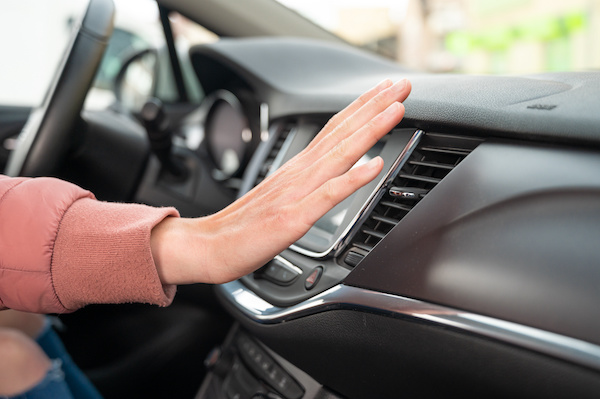
Is your vehicle's AC blowing some hot air? Well, that's welcome in the winter cold, but that might be uncomfortable in summer. A broken car conditioner can make summer a sweaty, hot, and wet experience! Here are six probable problem areas to check and possible problems. Refrigerant problems A refrigerant or coolant expands after absorbing heat from your vehicle's AC system, which later gets condensed to dissipate the heat. The coolant is housed in an air-tight and sealed system. When the refrigerant evaporates or escapes, the cooling system fails, and the AC cannot cool your vehicle. Topping up your coolant is the ultimate solution for such a problem. A damaged electrical system An electrical system powers your car's AC system. As such, the failure of any electrical system units can cause a malfunction of the AC system. Check your relays, fuses, and switches if a damaged electrical system is your suspected failure. Damaged condenser The condenser plays an importa ... read more
Posted on 11/30/2022
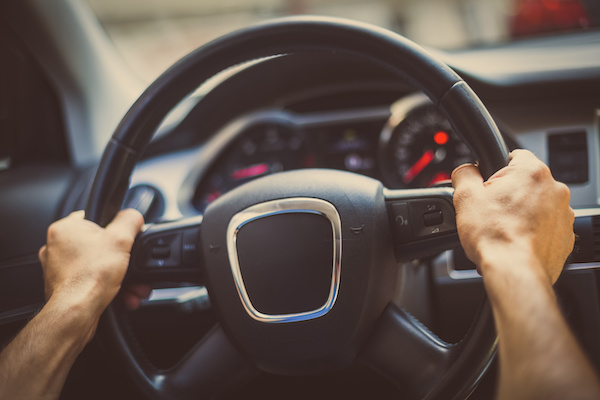
The power steering system allows drivers to steer and maneuver with little-to-no effort, allowing them to focus on the road. It is a hydraulic system that uses power steering fluid to build the necessary pressure to change the direction of your wheels. When your vehicle’s power steering goes out, you may need to do more than a slight tug to turn your car. In severe cases, you might not be able to move the steering wheel at all. Today, we will discuss the most common power steering problems and how we can fix them at Taylormade Automotive. Leaking Fluid - Power steering fluid is one of many liquids that power your car’s systems. Over time, this fluid becomes less effective and is susceptible to contamination. This can cause corrosion, which eventually leads to leaks. Failing Steering Pump - The power steering pump is one of those components that may require replacing after some time. When the pump loses its integrity, it will lead to a loss in pressure. Old Drive Be ... read more
Posted on 10/28/2022
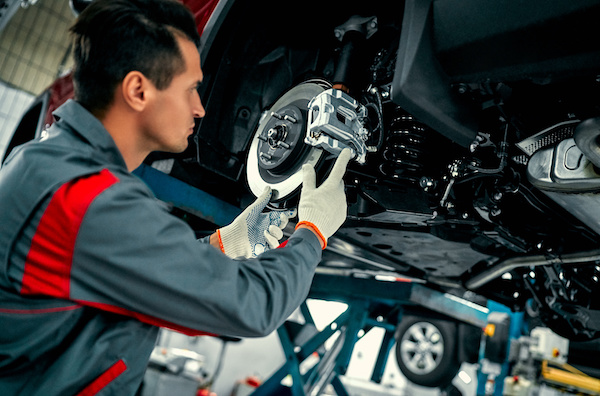
When your braking system is working correctly, you probably take it for granted. However, the braking system is one of the most vital parts of your vehicle, and it keeps you and others safe. You need to know enough about your braking system to ensure it is working properly. One fact to fathom is the difference between brake pads and brake shoes. Though they are different, they perform the same task. Read on to find out the difference between brake pads and shoes. Brake Pads vs Brake Shoes Most modern braking systems contain disc brakes with braking pads. Brake pads are flat pieces of steel with high-friction material like rubber on either side. On the other hand, a brake shoe is a curved piece of metal that looks like a shoe that is used in brake drum systems. Only one side of the brake shoe is covered in friction material. Braking Force Direction One of the primary differences between brake pads and brake shoes is the direction of braking force. Brake shoes stop the car by pushin ... read more